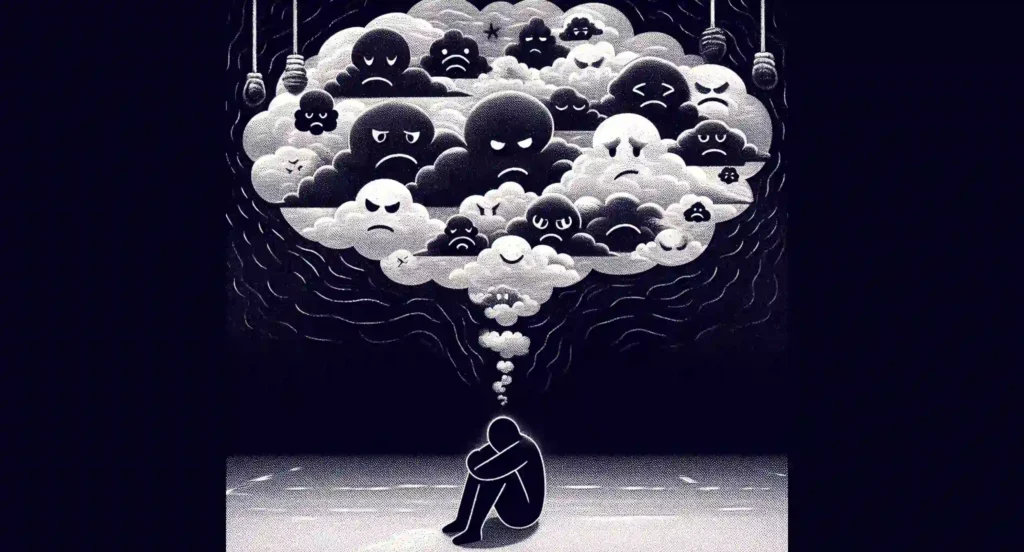Short Answer: How do I stop assuming the worst in a relationship? It’s Simple just try to communicate openly with your partner and ask for clarification when you’re unsure about something. Focus on the positive aspects of your relationship and try to assume the best instead of the worst. Be aware of your thoughts and try to identify when you’re assuming the worst. You can also practice mindfulness to help you stay present and avoid jumping to conclusions. If you’re struggling to overcome your negative thinking patterns, consider seeking professional help.
Are you tired of feeling like you’re always waiting for the other shoe to drop in your relationship? Do you find yourself constantly on edge, wondering when the next argument or disappointment will occur? If so, you’re not alone. Many people struggle with the fear of the unknown in their relationships, and it can be difficult to know how to move past these feelings.
In this article, we’ll explore the mysteries of how to stop expecting the worst in a relationship. We’ll delve into the depths of what makes us feel anxious and worried, and uncover the secrets to overcoming these emotions. You’ll learn how to identify potential triggers, create an action plan, and recognize the positive aspects of your relationship. By the end of this article, you’ll be equipped with the tools you need to stop expecting the worst and start enjoying your relationship to the fullest. So, are you ready to unlock the mysteries of how to not assume the worst in a relationship? Let’s begin! 🕵️♀️🔍

What are some common negative thoughts about relationships?
It’s natural to have negative thoughts about relationships from time to time. Some common ones include:
| Negative Thoughts | Description |
|---|---|
| Fear of abandonment | Worrying that your partner will leave you or that you’re not good enough to keep them around. |
| Jealousy | Feeling threatened by your partner’s interactions with others or their past relationships. |
| Lack of trust | Doubting your partner’s honesty or faithfulness. |
| Negative self-talk | Believing that you’re not worthy of love or that you don’t deserve to be happy. |
| Assuming the worst | Jumping to conclusions and assuming that your partner has bad intentions or is hiding something from you. |

20 Tips for How do I stop thinking so negatively about my relationship?
Here are some tips to help you stop thinking so negatively about your relationship, along with examples to help you understand each one better:
- Take a deep breath: When you start to feel overwhelmed by negative thoughts, take a few deep breaths to calm yourself down. For example, if you’re feeling anxious about your relationship, take a few deep breaths and focus on your breathing. This can help you feel more relaxed and less anxious.
- Talk to your partner: Share your concerns with your partner and work together to find solutions. For example, if you’re feeling insecure about your relationship, talk to your partner about your concerns. They may be able to reassure you and help you feel more secure.
- Focus on the positive: Try to focus on the positive aspects of your relationship instead of dwelling on the negative. For example, if you’re feeling unhappy about something in your relationship, try to think about all the things that make you happy in your relationship. This can help you feel more positive and less negative.
- Practice gratitude: Take some time each day to think about the things you’re grateful for in your relationship. For example, you might be grateful for your partner’s sense of humour, their kindness, or their support. Focusing on these positive aspects of your relationship can help you feel more grateful and less negative.
- Spend time apart: Spending time apart can help you gain perspective and appreciate your partner more. For example, you might spend a weekend away with friends or family, or take up a new hobby that you enjoy doing alone. This can help you feel more independent and less reliant on your partner.
- Practice self-care: Take care of yourself physically and emotionally to help reduce stress and anxiety. For example, you might take a yoga class, go for a walk, or take a relaxing bath. This can help you feel more relaxed and less stressed.
- Challenge your negative thoughts: When you have a negative thought, challenge it by asking yourself if it’s true. For example, if you’re thinking that your partner doesn’t love you anymore, ask yourself if there’s any evidence to support that thought. This can help you see things more objectively and less negatively.
- Be mindful: Practice mindfulness to help you stay present and focused on the moment. For example, you might practice mindfulness meditation, or simply take a few minutes each day to focus on your breathing. This can help you feel more centred and less distracted by negative thoughts.
- Communicate effectively: Learn how to communicate effectively with your partner to avoid misunderstandings. For example, you might practice active listening, or use “I” statements instead of “you” statements when expressing your feelings. This can help you feel more heard and less misunderstood.
- Set boundaries: Set boundaries to protect your emotional well-being and maintain a healthy relationship. For example, you might set a boundary around how much time you spend with your partner’s family, or around how much time you spend talking about work when you’re at home. This can help you feel more in control and less overwhelmed.
- Get support: Reach out to friends, family, or a therapist for support when you need it. For example, you might talk to a friend about your relationship concerns, or see a therapist to work through any issues you’re having. This can help you feel more supported and less alone.
- Focus on solutions: Instead of focusing on the problem, focus on finding solutions. For example, if you’re feeling unhappy about something in your relationship, focus on finding a solution that works for both you and your partner. This can help you feel more empowered and less helpless.
- Don’t compare: Avoid comparing your relationship to others and focus on what works for you. For example, just because your friend’s partner does something for them doesn’t mean your partner has to do the same thing for you. This can help you feel more content and less jealous.
- Be honest: Be honest with yourself and your partner about your feelings. For example, if you’re feeling unhappy about something in your relationship, be honest with your partner about how you’re feeling. This can help you feel more authentic and less fake.
- Practice forgiveness: Learn to forgive your partner and yourself for mistakes. For example, if your partner forgets your birthday, try to forgive them instead of holding a grudge. This can help you feel more compassionate and less resentful.
- Take responsibility: Take responsibility for your happiness and well-being. For example, if you’re feeling unhappy in your relationship, take responsibility for finding ways to make yourself happy. This can help you feel more empowered and less helpless.
- Be patient: Remember that change takes time and be patient with yourself and your partner. For example, if you’re working on improving your communication with your partner, remember that it won’t happen overnight. This can help you feel more patient and less frustrated.
- Learn from the past: Learn from past mistakes and use them to improve your relationship. For example, if you’ve had communication issues in the past, use those experiences to learn how to communicate more effectively in the future. This can help you feel more confident and less anxious.
- Have fun: Don’t forget to have fun and enjoy your time together! For example, you might plan a fun date night or take a trip together. This can help you feel more connected and less distant.
- Remember why you fell in love: Take some time to remember why you fell in love with your partner in the first place. For example, you might think back to your first date or the moment you realized you were in love. This can help you feel more grateful and less negative.
How do I stop expecting the worst in my relationship? 😊 I hope these tips and examples help you stop thinking so negatively about your relationship. Remember, it’s important to take care of yourself and your relationship.


